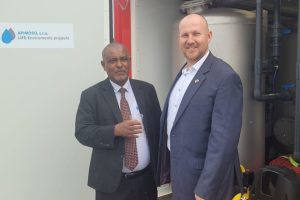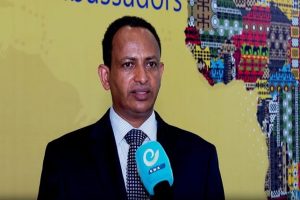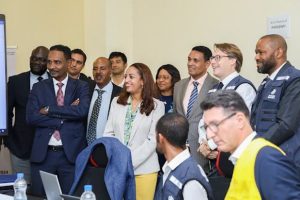
More than 12 million Ethiopians lead pastoral and semi-pastoral way of life, the World Bank report indicates. As they live in remote and arid areas, pastoralist communities have been economically and socially underplayed. They have been deprived basic social service, infrastructure and economic empowerment.
Having understood this, the government has been undertaking several schemes which could empower pastoralist and semi-pastoralist communities in collaboration with other concerned stakeholders.
As part of the government and government initiations, several activities have been carried out to improve the life of pastoralist and semi-pastoralist societies.
The Ministry of Peace has unveiled 451 million USD worth project that could bring significant economic advantage for pastoralist and semi-pastoralist communities who live in Somali, Afar, Gambela, Southern Nations, Nationalities and Peoples State, Oromia and Benishangul-Gumuz States, says Lowland Livelihood Resilience Project (LLRP), Coordinator, Seid Omer. It will be undertaken in collaboration with the Ministry of Agriculture and other development partners.
As to him, the allocated finance would be covered by World Bank Group and International Fund for Agricultural Development as grant and long-term loan package.
Seid adds that the project will be implemented in line with activities being accomplished by government and non-government organizations.
‘‘The project that aimed to benefit 2.5 million people who lead pastoral and semi-pastoralist life would be expected to ensure significant change. It will last for six years and it is expected to cover 100 districts (Woreda) in the aforementioned six states. Women and children will be the main beneficiaries,’’ Seid stated.
LLRP has planned to achieve four major components related to land development and management, livelihood improvement and diversification, improvement of basic services and capacity building, project improvement, monitoring and evaluation.
Moreover, the project will have massive role in improving basic issues of the pastoral and semi-pastoral community related to water and pasture availability and land degradation protection mechanisms, the coordinator indicates.
As the pastoral community is highly dependent on animal rearing, the project would help them to modernize the quality and health of their animals. It as well will pave a way for agro-processing development.
In addition to this, the project aims at enhancing irrigational agriculture, beekeeping and poultry sectors, the coordinator explains.
The other challenge that should be addressed while improving the life of pastoralist and semi-pastoralist society is insurance service provision. Regarding this, insurance companies like Nyala Insurance are playing pivotal role in outreaching remote pastoralist areas.
Nyala Insurance Share Company, Micro-Insurance Department Manager, Solomon Zegeye said that his company has been providing insurance service for pastoralist societies across the country.
He underlines that index and indemnity based insurance schemes have been provided in drought affected pastoral and semi-pastoral communities. The task has been accomplished in collaboration with development partners.
‘‘It is obvious that pastoralist and semi-pastoral societies depend on livestock. Thus, we support them in case of animal disease and drought. The buy pastures for their animals when drought hits,’’ Solomon points out.
As climate change is causing serious damage especially in pastoral and semi-pastoral societies, other insurance companies must extend their utmost support to those societies, Solomon urges.
Furthermore, social service, infrastructures and environmental protection schemes should be exhaustively implemented to bring fundamental changes in the lives of pastoral and semi-pastoral communities. Hence, governmental and non-government organizations, insurance companies and other stakeholders have to work in an integrated and collaborated manner.
The Ethiopian Herald December 5/2019
BY TSEGAY HAGOS





